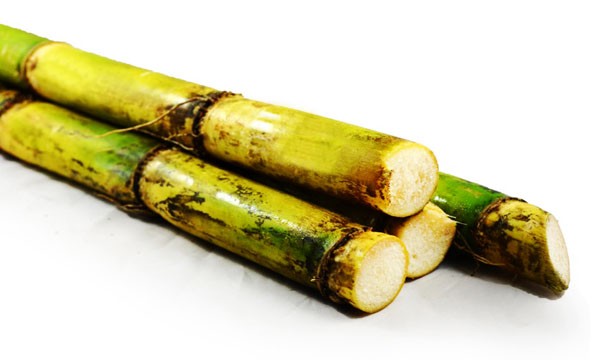A Detailed Review of the Health And Wellness and Economic Ramifications of Walking Stick Sugar Processing on Local Neighborhoods
Walking stick sugar processing plays a pivotal role in shaping the economic landscape of local communities, supplying work opportunities and stimulating ancillary industries. The wellness ramifications associated with high sugar consumption can not be overlooked, as they add to climbing rates of obesity and diabetes.
Financial Benefits of Walking Cane Sugar Handling
Cane sugar processing offers substantial economic benefits that prolong past the prompt farming sector. The growing and processing of sugarcane produce countless job possibilities, from farming to production and distribution. This employment generation not only sustains local economic situations yet also fosters area advancement by giving steady income resources for family members.
Additionally, the sugar industry boosts secondary companies, including transport, equipment supply, and packaging services (Cane Sugar Processing). As these industries expand, they add to a much more durable economic framework, boosting overall neighborhood resilience. The export possibility of processed cane sugar even more enhances financial benefits, placing regions as competitive gamers in international markets
Investment in contemporary processing facilities can bring about increased efficiency and performance, consequently minimizing waste and optimizing source usage. This change not just profits the regional economic climate however also sustains sustainability efforts by lessening environmental impacts.
In addition, the profits created from cane sugar handling can be reinvested in neighborhood infrastructure, education, and healthcare, promoting all natural area development. Overall, the economic benefits of walking stick sugar processing are diverse, supplying a foundation for sustaining prosperity in agricultural areas.
Health And Wellness Threats Associated With Sugar Consumption
Excessive sugar intake postures considerable health and wellness dangers that call for significant focus. High intake of added sugars, especially from refined foods and drinks, has actually been linked to many health problems.
In addition, high sugar usage is associated with heart disease. Elevated blood sugar level levels can bring about insulin resistance, a precursor to various heart-related problems. Furthermore, sugar can have destructive results on oral wellness, causing dental caries and gum tissue condition, as microorganisms in the mouth thrive on sugar, creating acids that erode tooth enamel.
In addition, emerging research study recommends a prospective web link between high sugar usage and psychological health and wellness problems, such as clinical depression and stress and anxiety. As neighborhoods face these health dangers, it becomes vital to advertise understanding and motivate healthier nutritional options. Dealing with sugar intake is vital not just for private wellness however additionally for the overall wellness of neighborhood communities, highlighting the demand for comprehensive public health methods.
Ecological Influences of Sugar Production
Often overlooked in discussions concerning sugar's implications is the substantial environmental influence of sugar production. The farming of sugarcane typically necessitates substantial land usage, leading to deforestation, loss of biodiversity, and interruption of regional ecological communities. The conversion of forests and wetlands into sugar haciendas can result in environment devastation, threatening numerous types and changing ecological equilibrium.
In addition, sugar production is resource-intensive, consuming significant quantities of water for watering. This can lead to exhaustion of regional water resources, adversely impacting both farming techniques and community access to tidy water. Additionally, making use of chemical fertilizers and pesticides in sugarcane farming can add to soil deterioration and water contamination, as overflow from these chemicals enters neighboring rivers and lakes, affecting aquatic life and human health.
The ecological footprint encompasses the handling phase, where power usage and waste generation more worsen ecological problems. Air contamination from shedding sugarcane fields, along with greenhouse gas emissions, add to environment modification. Thus, the environmental effects of sugar production warrant serious factor to consider, advising stakeholders to take on more sustainable practices to alleviate these damaging results on neighborhood ecosystems and communities.
Job Production and Neighborhood Advancement
The environmental obstacles presented by sugar production are frequently counterbalanced by its potential for financial benefits, especially in work development and area advancement. The walking cane sugar industry acts as a significant source of work in numerous rural locations, supplying jobs throughout different skill degrees, from agricultural labor to processing and circulation functions. This work not just sustains specific families but additionally adds to the overall economic vitality of local neighborhoods.
In addition, the facility of sugar handling centers boosts ancillary companies, such as transportation solutions, tools supply, and maintenance carriers. As these businesses flourish, they produce extra work and bolster regional economic situations. The income produced from the sugar market likewise results in boosted tax obligation revenues, which can be reinvested right into social work such as education and learning, infrastructure, and medical care development.
In addition, the sugar industry typically takes part in neighborhood advancement efforts, such as supporting regional browse around this web-site institutions and wellness programs, therefore improving the top quality of life for locals. By cultivating strong area ties and advertising financial growth, the cane sugar handling field plays an important function in uplifting neighborhood populations, making it an important part of sustainable advancement strategies in sugar-producing areas.
Balancing Health and Economic Development
In navigating the intricacies of cane sugar processing, an essential difficulty hinges on balancing health and wellness factors to consider with financial growth. The sugar market substantially adds to regional economic situations by producing tasks, stimulating related sectors, and enhancing tax obligation profits. However, the health implications related to too much sugar consumption can cause chronic conditions such as weight problems, diabetes mellitus, and cardio problems, which can concern public wellness systems and reduce workforce performance.

Additionally, regulatory structures can play a critical role in assisting industry practices in the direction of even more health-conscious and sustainable approaches. By fostering partnership between government bodies, health and wellness organizations, and the sugar industry, areas can navigate the dichotomy of health and wellness and economic development, guaranteeing that the benefits of walking cane sugar handling are equitably shared while prioritizing public health.
Final Thought
In conclusion, the processing of cane sugar provides both substantial economic advantages and notable wellness risks for regional areas. While it promotes work creation and boosts regional advancement, the associated health issues, especially pertaining to weight problems and diabetes mellitus, demand a mindful balancing act. By promoting responsible intake and investing in neighborhood education and learning and sustainable practices, it is feasible to optimize economic advantages while decreasing damaging health and wellness effects, thereby ensuring a much healthier future for regional populations.
In addition, sugar can have detrimental impacts on dental health and wellness, resulting in dental caries and gum condition, as germs in the mouth flourish on sugar, creating acids that erode tooth enamel.
Attending to sugar intake is important not only for private wellness view publisher site but also for the general well-being of regional communities, stressing the requirement for extensive public health strategies.
Often overlooked in discussions regarding sugar's implications is the significant ecological impact of sugar production. The wellness ramifications associated with too much sugar usage can lead to persistent illness such as excessive weight, diabetic this content issues, and cardiovascular issues, which can concern public health systems and diminish labor force efficiency.

Comments on “Cane Sugar Processing: From Area to Table-- A Step-by-Step Guide”